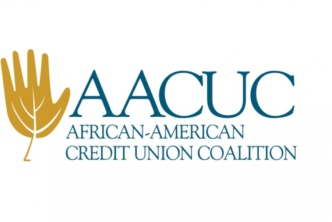In the midst of the COVID-19 outbreak, Ginnie Mae says it is positioned to continue providing services across its range of stakeholders. In a statement by Seth D. Appleton, principal executive vice president of Ginnie Mae on March 27, it was announced that under the Ginnie Mae MBS program, the approved issuers who service mortgage-backed securities (MBS) are required to remit scheduled principal and interest (P&I) to investors, and make various other payments in connection with mortgage loans, even when monthly payments are not received from borrowers. The investors who support access to affordable mortgage credit for the U.S. Department of Housing and Urban Development (HUD), the U.S. Department of Agriculture (USDA), and the U.S. Department of Veterans Affairs (VA) borrowers by purchasing Ginnie Mae securities will receive payments of principal and interest on time and in full.
“We have heard from our issuer and servicing partners that borrower forbearance arrangements that are nationwide in scope could place an enormous strain on issuers,” Appleton stated. “This strain would be caused by the immediate need to advance required pass-through payments to investors, or other entities entitled to receive payments, and the later reimbursement of those advances by borrowers or the agencies who insure the loans (HUD, VA and USDA under the Ginnie Mae program).
“Please know that we are taking action to address these concerns and potential liquidity challenges faced by Ginnie Mae issuers. Ginnie Mae has the authority to make changes to the requirements of our program, and we are using those powers to tailor the existing disaster pass-through assistance programs to more suitably scale to the needs of this National Emergency.”
Within the next two weeks, Ginnie Mae will implement a Pass-Through Assistance Program (PTAP) through which issuers with a P&I shortfall may request that Ginnie Mae advance the difference between available funds and the scheduled payment to investors. This PTAP will be effective immediately upon publication of the APM for Single Family program issuers, with corresponding changes made to Ginnie Mae’s MBS Guide in due course.
Under current policy, the advancing of funds by Ginnie Mae to an issuer as a result of a Major Disaster declared by the President would be a considered an event of default under our program. But, because the current National Emergency is not limited in geographic scope in the way a natural disaster is, a P&I advance by Ginnie Mae through the PTAP will not be considered an event of default, though all other program requirements will continue to apply. In return for any payments advanced under the PTAP, issuers will be required to sign an agreement with Ginnie Mae and must repay the advance within a specified time period. The agreement with Ginnie Mae will provide for extension requests and specify the rate of interest that will apply to the borrowed advances.
“To be perfectly clear, borrowing under the PTAP should be a ‘last resort’ financing option to alleviate a liquidity shortage faced by any Ginnie Mae issuers,” Appleton stated. “PTAP’s purpose will be to support the forbearance and loss mitigation programs of our insuring agency partners (FHA, VA and USDA) by minimizing potential disruption in the mortgage servicing market so that those federal mortgage insurance and guarantee programs can be administered efficiently and with maximum help to borrowers. Ginnie Mae will choose to make these advances only where doing so will further the program mission and the American taxpayers who stand behind it.”
If you have additional questions, visit Ginniemae.gov or contact Ginnie Mae Relationship Services at (800) 234-4662, Option 5. Ginnie Mae addresses servicer liquidity issues.





